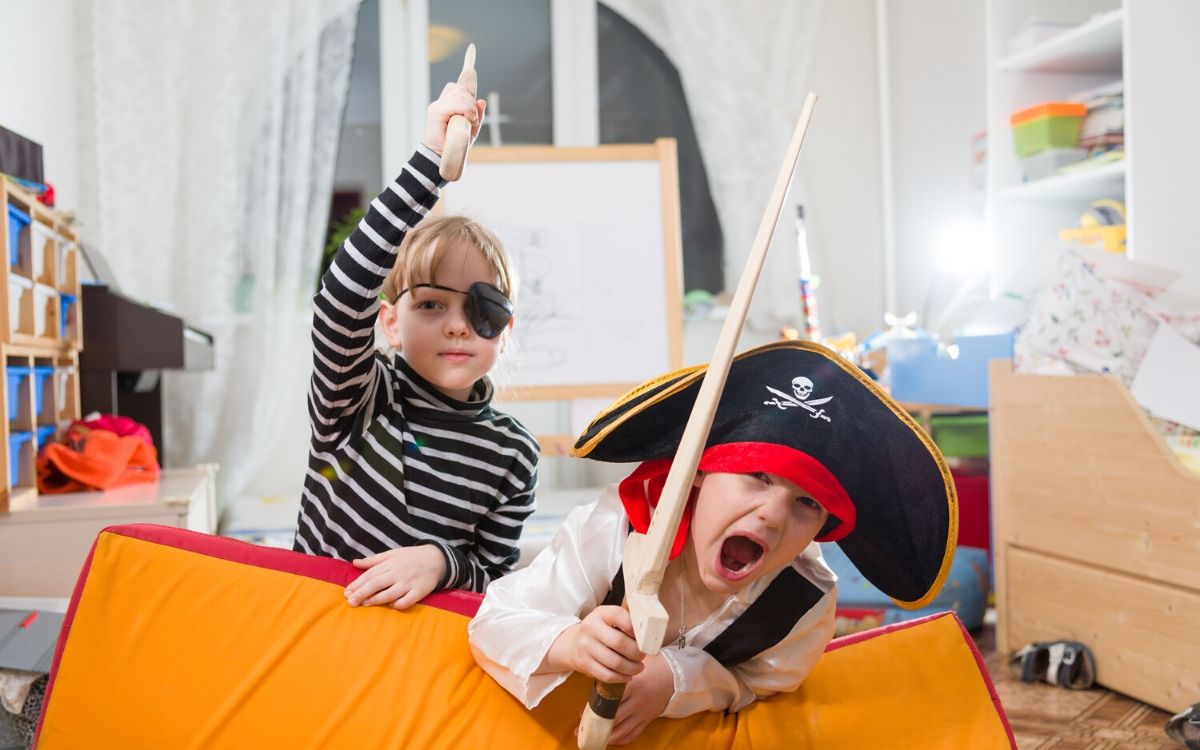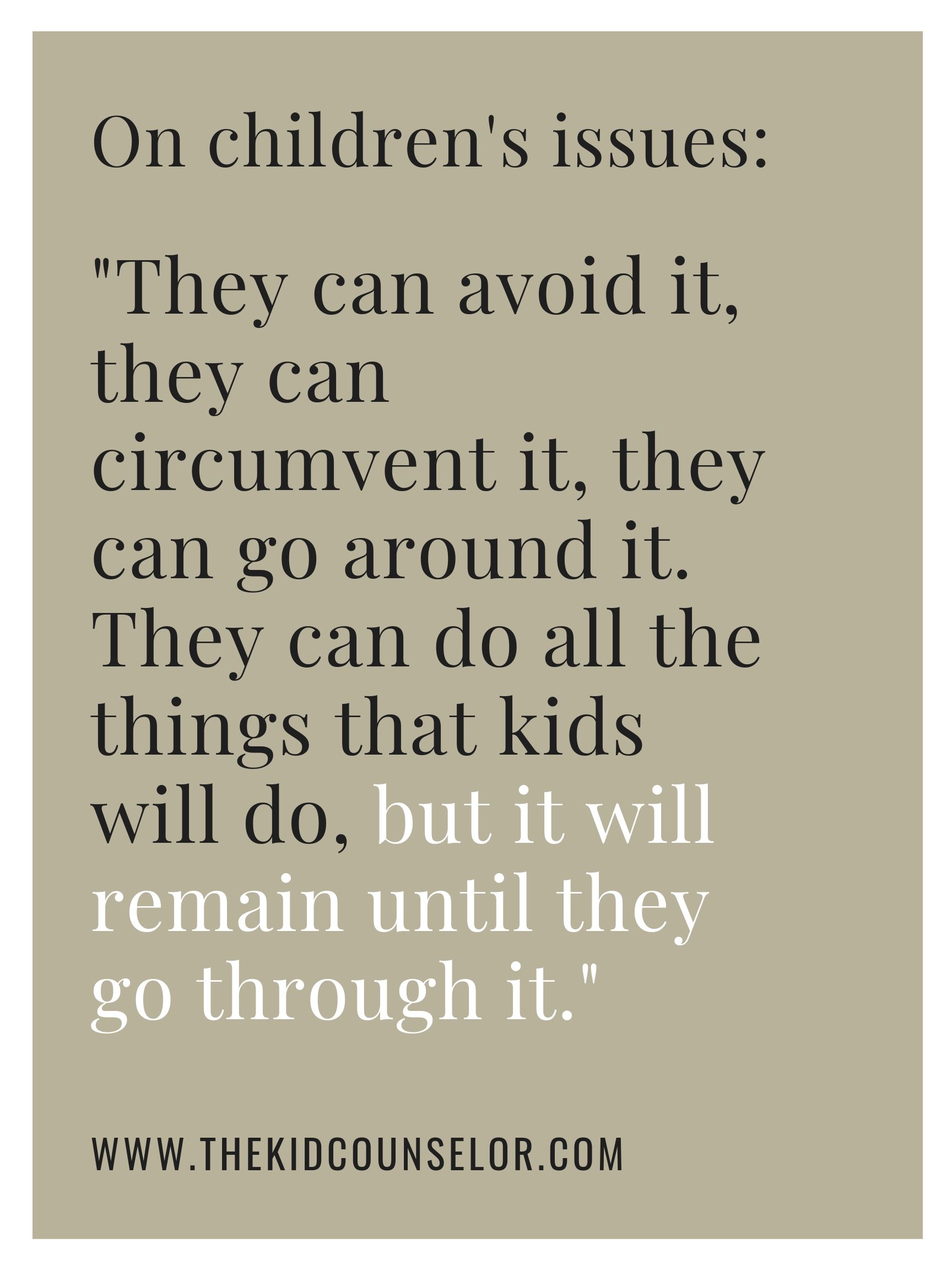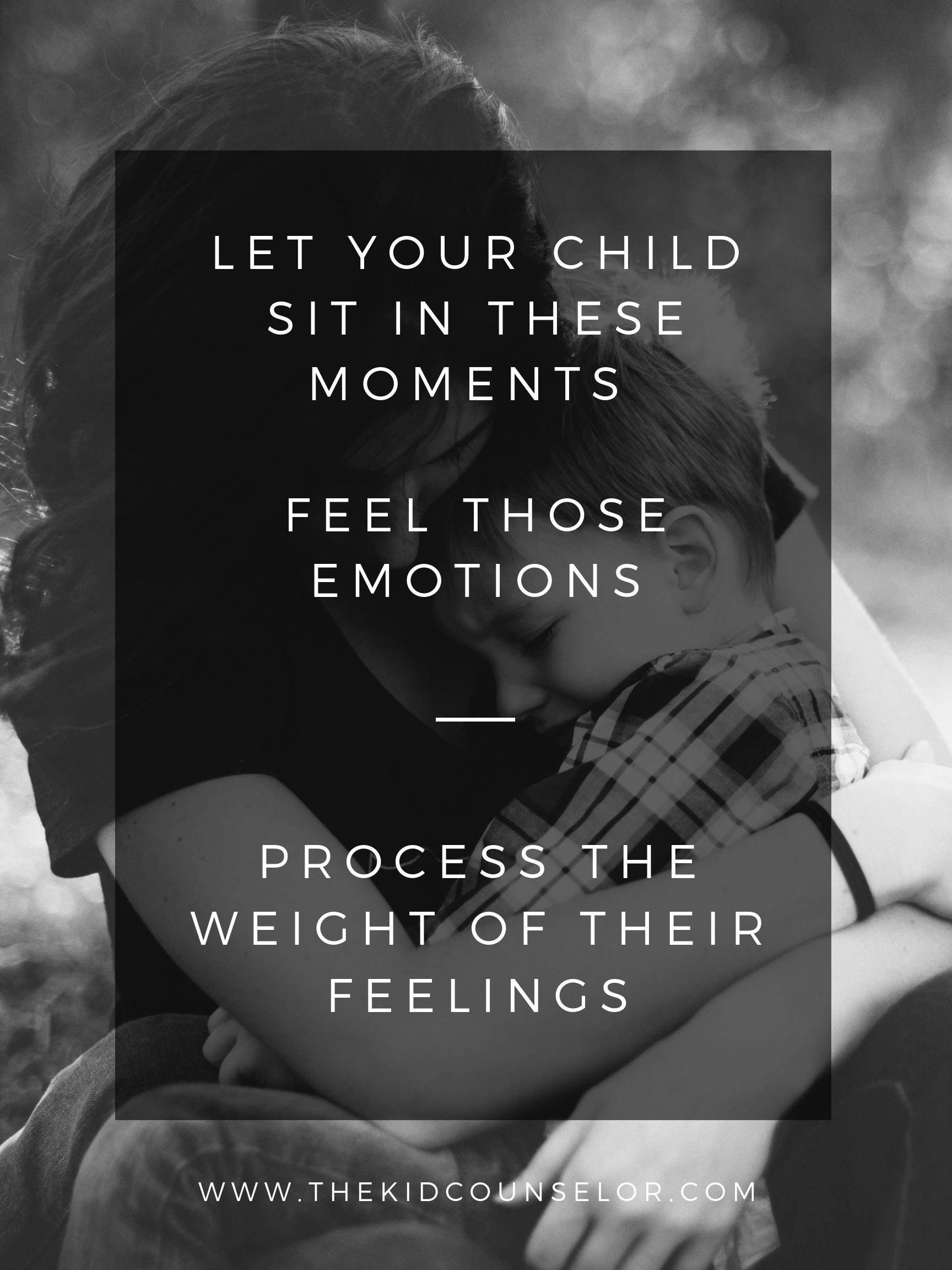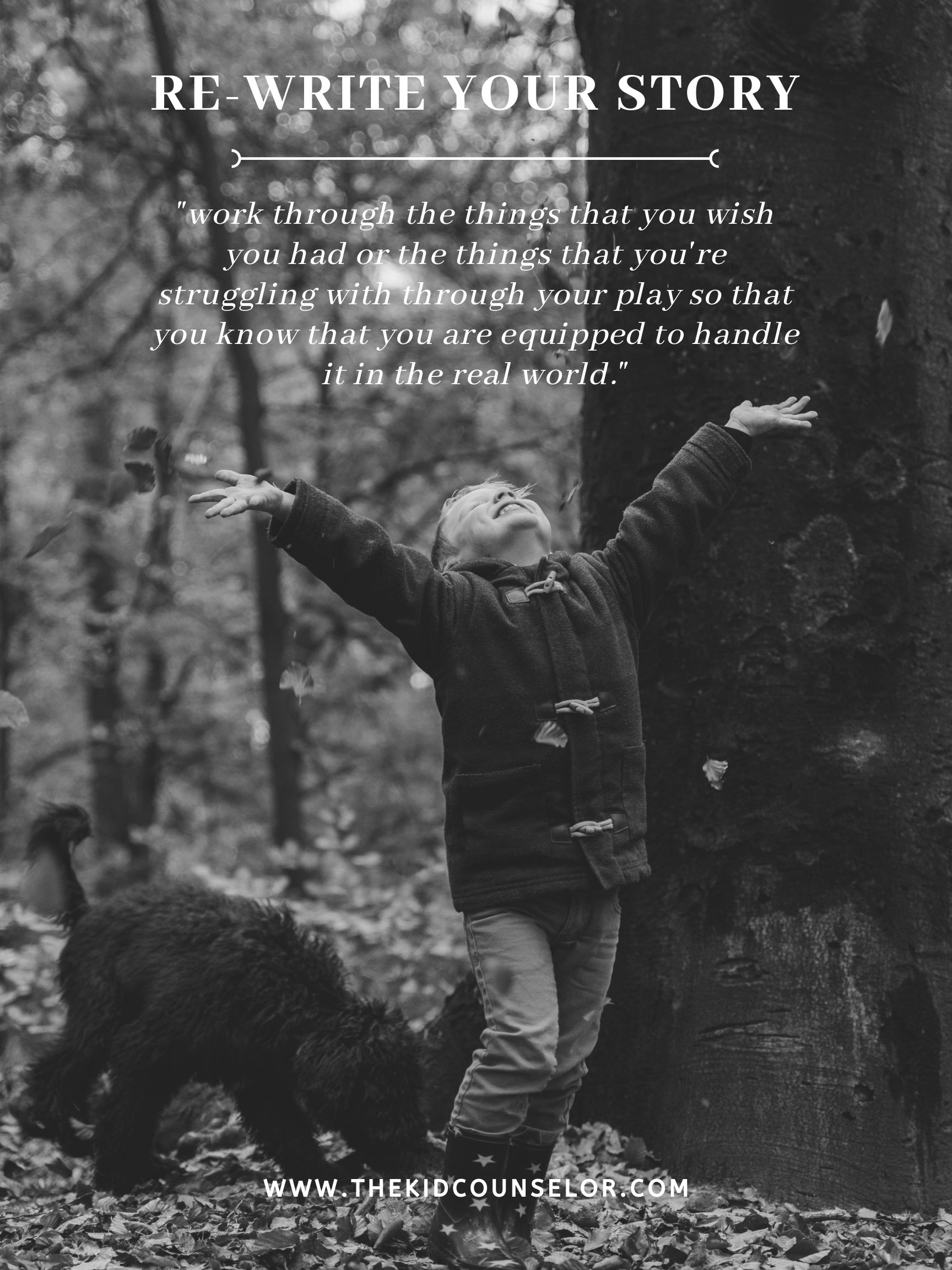Topics discussed in this episode
- How children “play” through their issues
- An example of this from the playroom
- Children play through their issues and “re-write their story”
- The take-away is to not “protect” your child from their feelings. The only way through an issue, is to go through it!
- Secondary topic of non-traditional family configurations and how that affects kids
Transcript - click to view
And just from a parenting perspective, it’s really important to understand the way that children process things and the normal progression through healing and growth. So even if you’re not necessarily pursuing therapy, I still think that you’ll find this helpful because this is a story directly from my playroom this week.
So I began working with a nine year old girl who had been adopted by her grandparents. They were raising her and her father recently passed away about a year ago and her mom has been in and out of prison and so her grandparents have been consistently the legal guardians in her life. So they pursued treatment for her specifically for grief over her father’s death. It was an unexpected death. He was young. And so there’s definitely the grief and the loss there.
But then also she is becoming aware of not having a traditional mom and dad. And when she was younger it didn’t really register with her. But now that peers at school are making comments about her calling her grandparents ‘mom and dad’ and them being older and just the differences that kids have noticed, she has started to question that and resent that a bit.
And so I began working with her and the first session she brought up her family; right away began playing out a family play theme. So she got all of the family members and did a narrative play about the family taking trips together and the mom and the dad and the children and all of those things.
Now interestingly, I never spoke with her about her family. I never told her that I knew anything about her family history. When kids come to me, as far as they know, they’re just coming to play. And so my prompt was ‘You can play with all the toys and most of the ways that you’d like’ and that is what she chose to do. I didn’t bring up the family dynamic, I didn’t discuss anything that had gone on historically with her family, but it was obviously her need to work through that. And that’s what she chose to do week one.
When she came back the following week, she continued more familial play. And so she took the play, same theme, but she expanded on what they did. So she and the mom went shopping and they did things together. And what’s interesting in children’s play is they create through their play what they don’t have in reality. And sometimes we’ll call that rewriting the story. Sometimes we’ll call that changing the narrative. And essentially what that means is you will work through the things that you wish you had or the things that you’re struggling with through your play so that you know that you are equipped to handle it in the real world. And the more that you direct it how you wish that it would be, your ideal reality and your actual reality come together and are fused more effectively because the further your ideal gets from your actual, the harder it is to bridge that gap. But that can be done through play. So two weeks straight, she played out family themes, she played out those dynamics, those relationships.
And then shortly after the second session I got an email from grandma, and grandma said “The first week she came, she was very emotional. She cried about missing her dad and she was upset for several hours after the session. And last week when she came, she basically cried the rest of the night until she went to bed. And we’re pulling her out of treatment.”
And that was such an unfortunate response to that and I wanted to share a little bit about the way that works and why kids can get emotional. Kids learn very quickly that they have to push down their feelings to save the people that they love from the weight of those emotions. In other words, when kids are struggling, when they’re sad, when they’re grieving, when they’re angry, when they’re embarrassed, when there are any negative emotions, they learn that if they express those, there’s almost always a negative reaction from the people that they love. It makes them sad. It makes them angry. They try to solve the problem. They try to do things.
So they’re very protective of what they will reveal to the people that they love. It’s a safety for them and for their family members. Well, when she was given neutral, third party objectivity – I didn’t have an emotional piece to the puzzle for her – she was able to start processing the needs and the desires and the wants and the loss and the grief and all of those things. She’d been stuffing it for more than a year. It finally starts to bubble up and it was heavy and it was deep and it was hard.
You know, healing is a painful business. And so she really started feeling the weight of that loss and grief and sadness and all of those feelings and she was trying to make sense of them after she left the session. But unfortunately, and understandably, grandma wanted to protect her and didn’t want to see her cry and didn’t want to see her suffer and she chose to pull her out of treatment.
But unfortunately that is exactly what will prolong the healing. It’s just like having a gaping wound or having a broken bone. It’s painful to get it healed. There are sutures or there’s resetting the bone or there’s surgeries or there’s whatever needs to take place. Those are painful, but they allow the healing process to begin.
So I would encourage you, please be aware that as your children are processing things, whether in therapy or not, even if it’s just at home with you, they need to be able to sit in those moments. They need to be able to feel those emotions. They need to be able to process the weight of their feelings.
Obviously we would encourage you to make sure someone can come alongside them that’s well trained to help them navigate those things. But even if that’s you as a parent or a guardian, if you feel that you can handle and sit in those moments with them, do that. But please be aware of not trying to protect them from it or shield them from it or hide them from it because the only way to overcome and to heal and to progress it is to go through it.
I worked with children going through grief through the Hospice Program and one of the tennet phrases of grief is “You can’t go around it; You have to go through it.” And that is true for every issue that a child faces. They have to go through it to heal. They can avoid it, they can circumvent it, they can go around it, they can do all the things that kids will do, but it will remain until they go through it.
And that’s true of the therapeutic process, too. So once your child is in therapy and/or once your child is processing things, please be mindful of that. I encourage you to bring a therapist that’s trained to come alongside you and your family and help them to go on that journey because everyone is the better for it on the other side of it. But we certainly don’t want to hinder or stop the process just because it’s painful because pain comes with healing.
So thank you so much for watching. I hope that encourages you and I look forward to seeing you again soon. Bye.
Rate, Review, & Subscribe in Apple Podcast
‘Dr. Brenna gives great parenting tips!’ <– If that sounds like something you’d say, please consider rating and reviewing my show! Your ratings and reviews helps my podcast reach more people, inspiring them to build better relationships with their kids. Click here, (you need to be in your Apple Podcast app) scroll to the bottom, tap to rate with five stars, and select “Write a Review.” Then be sure to let me know what you thought about the episode!
Also, if you haven’t done so already, subscribe to the podcast. I periodically add bonus episodes to the feed and, if you’re not subscribed, there’s a good chance you’ll miss out. Subscribe now!




